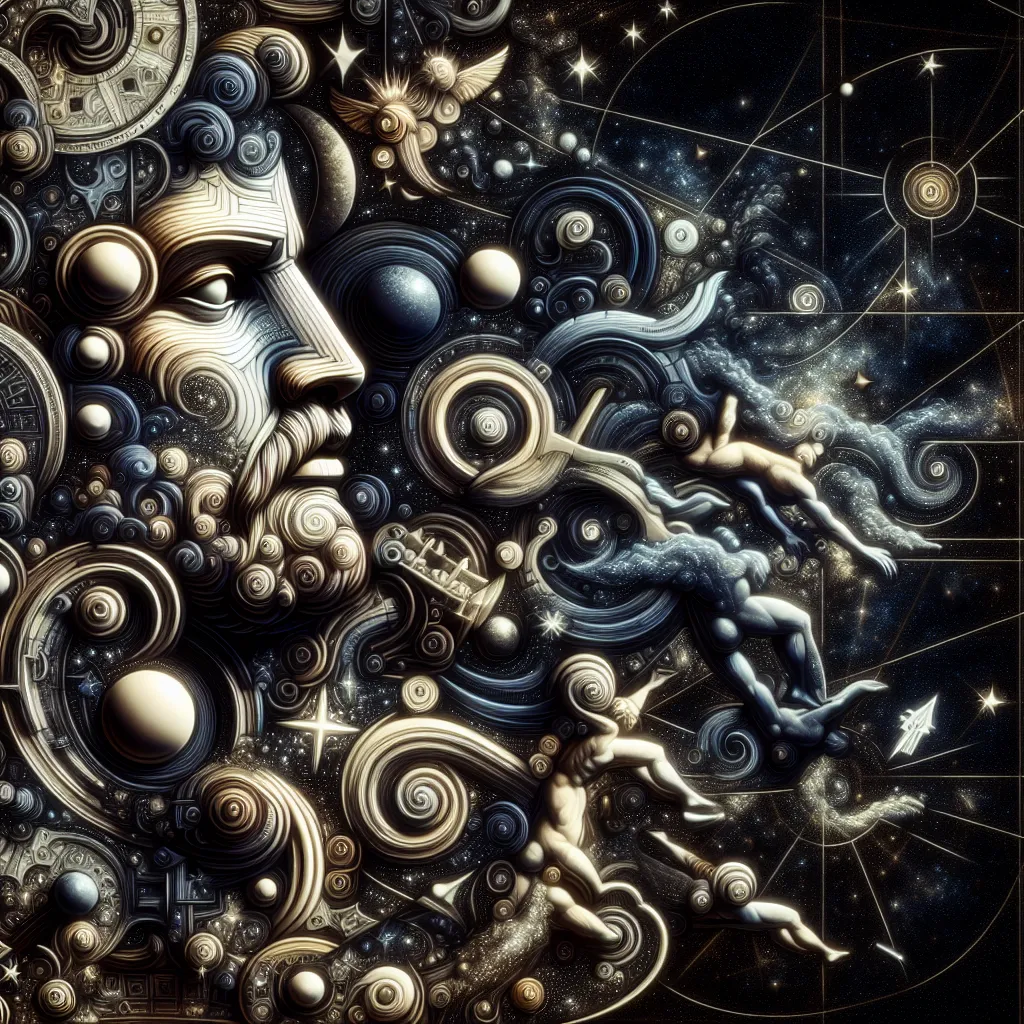Exploring the Mysteries of Dark Energy and the Expanding Universe
 Quantum Cyber Solutions
Quantum Cyber Solutions
Published on
Sunday, June 11, 2023
Exploring the Mysteries of Dark Energy and the Expanding Universe
=====================================================================
Authors

Name
Elon Tusk 😄
Twitter
Exploring the Mysteries of Dark Energy and the Expanding Universe
The cosmos—a vast, enigmatic expanse that continues to excite and baffle humanity. One of the most tantalizing mysteries in recent years has been dark energy and its role in the expansion of the universe.
The Essence of Dark Energy
Dark energy might sound like it's straight out of a science fiction novel, but it's very much a part of our universe. It's an unknown form of energy that permeates all of space and tends to accelerate the expansion of the universe.
What We Know So Far
- Invisible and Omnipresent: Unlike dark matter, which interacts via gravity and potentially with itself, dark energy doesn’t have a discernible impact on objects on a galactic scale. Instead, its effects are observed at the cosmic scale—in the fabric of the universe itself.
- Repulsive Force: Dark energy behaves like a repulsive force—opposite to gravity. While gravity pulls objects together, dark energy drives them apart. This effect was first observed in 1998 by two independent teams of researchers studying Type Ia supernovae.
- Energy Density: Dark energy accounts for approximately 68% of the total energy density of the universe. This massive proportion suggests it plays a critical role in cosmic evolution.
Recent Discoveries & Theories
The Expanding Universe
The observation that the universe is expanding wasn't revolutionary itself; it was the realization that this expansion is accelerating that rocked the scientific community to its core. This acceleration is where dark energy steps into the picture.
The Lambda-CDM Model
In cosmology, the most widely accepted model is the Lambda-CDM model. This model includes a cosmological constant, denoted by Lambda (Λ), which Einstein introduced (and later discarded as his "biggest blunder") to allow for a static universe. The discovery of the accelerating universe, however, vindicated the inclusion of this constant as a representation of dark energy.
Quantum Field Theory and Vacuum Energy
Quantum mechanics proposes that empty space isn’t empty at all. According to quantum field theory, it’s filled with temporary (virtual) particles that continuously form and annihilate. This buzzing activity contributes to what’s known as vacuum energy.
However, there’s a significant mismatch between the vacuum energy predicted by quantum field theory and the calculated value of dark energy. This discrepancy, known as the cosmological constant problem, is one of the biggest unsolved puzzles in physics.
Observational Advances
Meet the cutting-edge players:
The Dark Energy Survey (DES)
The Dark Energy Survey has mapped hundreds of millions of galaxies, detected thousands of supernovae, and found patterns of cosmic structure to understand the effects of dark energy. Its comprehensive dataset helps refine the properties and behavior of dark energy over time and space.
Euclid Spacecraft
The Euclid spacecraft by the European Space Agency aims to create a 3D map of the universe by observing billions of galaxies up to 10 billion light-years away. This mission seeks to explain why the universe's expansion is accelerating and what this means for the ultimate fate of the cosmos.
The Big Questions Ahead
Is Dark Energy Constant?
One critical question is whether dark energy is a cosmological constant, as per the Lambda-CDM model, or if it varies over time and space—a scenario supported by models like quintessence.
The Nature of Dark Energy's Influence
Understanding how dark energy interacts with the fundamental forces and the matter in the universe is paramount. Could it connect to a new, unknown field or particle? Is it a property of spacetime itself?
The Fate of the Universe
Finally, dark energy will dictate the universe's fate. Will it expand forever, eventually leading to a cold and dark "heat death"? Or will the acceleration slow, leading to a big crunch or perhaps a big bounce into a new epoch?
Final Thoughts
The study of dark energy and the universe's expansion represents one of the most exciting frontiers in modern science. Each discovery brings us a step closer to understanding the true nature of our cosmos, offering thrilling possibilities and boundless questions.
Stay tuned, space enthusiasts—the universe has just begun to reveal its secrets! 🌌✨
By exploring the enigma of dark energy, we embark on a grand journey across the vast expanse of the cosmos. Through cutting-edge research and cosmic detective work, we can unfold the secrets of the universe’s seemingly boundless growth.
Discuss on Twitter • View on GitHub
Tags
Previous Article
Next Article
From Tech-Minded to Musically Inclined: My Journey with Zachary Bethel
Subscribe to my newsletter
Read articles from Quantum Cyber Solutions directly inside your inbox. Subscribe to the newsletter, and don't miss out.
Written by
